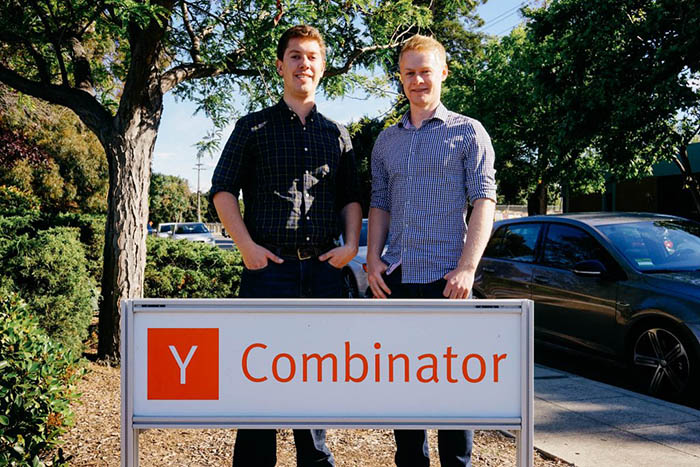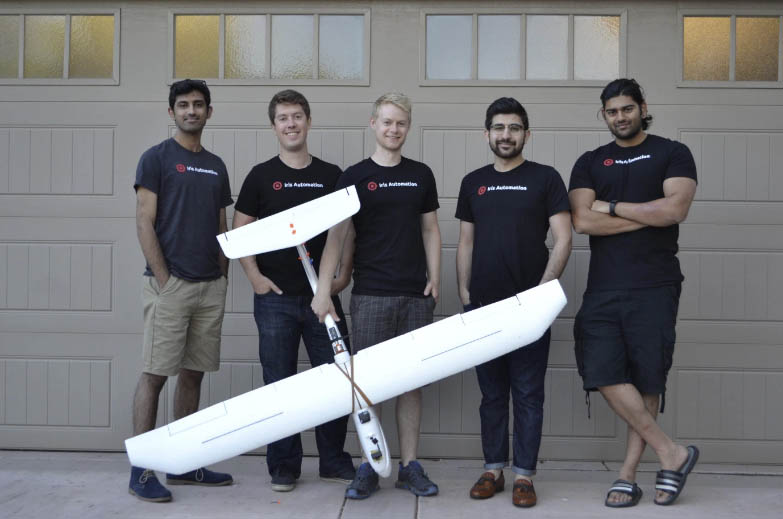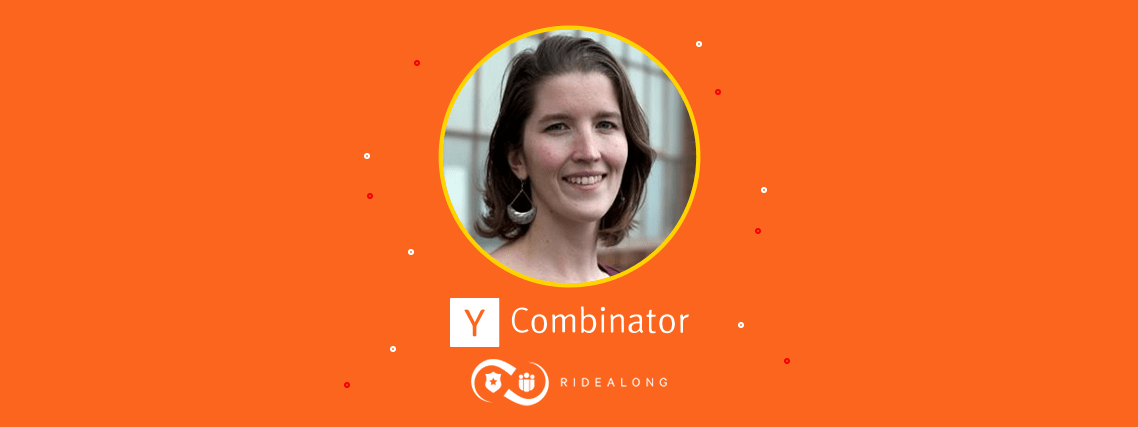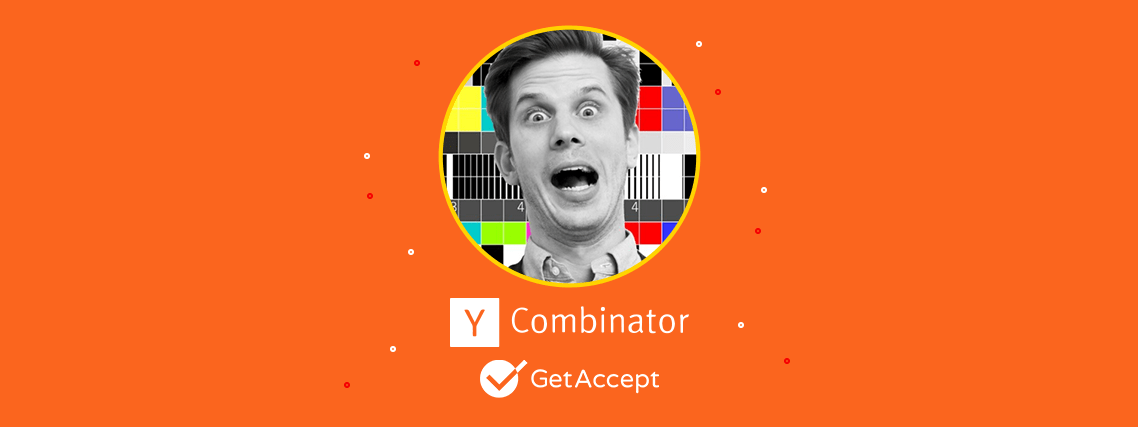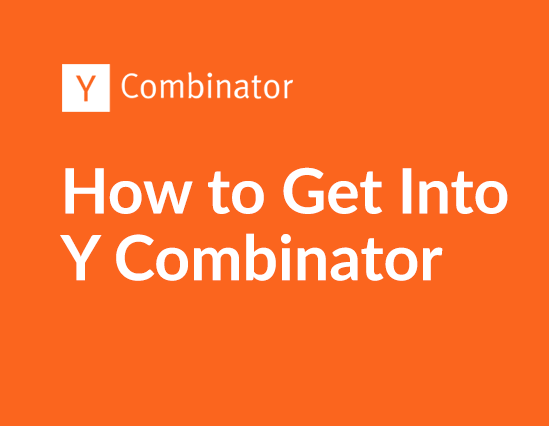The story of how two college friends joined forces to disrupt an industry with Iris Automation
- 1.From Wolf of Wall Street to a "Made Man" in Silicon Valley
- 2.How LendEDU Raised the Most Valuable Seed Round Imaginable with Y Combinator
- 3.Kyle Killion's story of getting Suiteness into Y Combinator along with tips on how to apply
- 4.Rotem Yakir shares Guggy’s story of evolving from "just another Israeli Startup" to a YC startup
- 5.The True Story of How Orion Willow Got Lendsnap Accepted Into Y Combinator
- 6.Nicky Goulimis shares Nova Credit's Path to Y Combinator Acceptance and Beyond
- 7.Katherine Nammacher Chronicles RideAlong’s Journey Into Y Combinator
- 8.The Story of How a Sofa Startup Got Into Y Combinator with Just a Pitch Deck
- 9.The story of how two college friends joined forces to disrupt an industry with Iris Automation
- 10.How 4 Swedes got their SaaS accepted into Y Combinator while still at $0 MRR
- 11.The story of when 8 x Co-Founders flew from Denmark to San Francisco for Y Combinator
- 12.Ryan Chan the founder of UpKeep shares his Y Combinator Journey
- 13.Pedro Goes of InEvent shares his Y Combinator Journey
- 14.Itay Forer of Cleanly shares his Y Combinator Journey
- 15.How to get into Y Combinator according to the founders that did get in
- 16.What It Was Like Doing Y Combinator a Second Time
James Howard is the co-founder and CTO @ Iris Automation, using computer vision techniques, their technology enables machines to fly and react naturally to their surroundings, providing increased safety, reduced risk, and redundancy. With this, they are enabling never before seen opportunities for unmanned systems.
Why did you decide to apply to YC?
My co-founder and I founded companies together while we were in college, but we were both engineers and didn’t really have a business background. We’ve done a few things together in the past like running engineering teams. We raised money for those teams and had a bunch of volunteers working for us to get some experience, but it was different to do that on a larger scale.
We found it extremely useful to go through the entrepreneurship support programs that our university had in place, and we wanted to take that to the next level. That’s when we heard about Y Combinator and all these different accelerators around the world.
We applied for a few, but we knew that Y Combinator was the one that everyone talks about. It gets the best reviews and it’s the one that’s created a lot of extremely impactful companies in the past. We really wanted to get into that community and to get the support of Y Combinator to build our business and teach us the things that we hadn’t learned yet.
We were lucky in that we had a couple of friends who’d worked for previous YC companies through a network that my co-founder Alex belongs to. That meant we were able to talk to them to understand what Y Combinator had to offer and to get a few tips for our application. That was when we realized that there was a lot on the business side, the customer side and the sales side that we didn’t know, and Y Combinator seemed like the perfect resource for us to learn it all. So that’s when we decided to apply.
What sort of traction did you guys have at the time you applied?
The most interesting thing I saw going through the program was that there was such a wide variety of companies. Some had millions of dollars of revenue, others barely had an idea. For us, it was a proof of concept piece of software that we’d worked on in our spare time during our final year at university.
So we didn’t have any paying customers. We didn’t have a product, we had an idea and we had something that proved that it could work. With that said, we also had some minimal traction from drone companies and customers that we talked to at events, like conferences and drone competitions.
And so we talked to these stakeholders within the industry and we knew that they needed a solution to their problem. So we had people who’d expressed interest and that was kind of it.
Our technology is similar to self-driving car technology in that it takes a long time to develop. The company’s been around for almost four years now and we only released our product in 2019. When we got into Y Combinator, we were very early on and we didn’t have all the traction we have now.
How much time and effort did you put into the application?
We put in quite a bit of effort and a lot of different things were involved. One thing, in particular, stands out. You can submit a one-minute video, and we must have shot 20-30 different versions of this video just to try and get it right. We wrote scripts, we practiced with our mentors and we had our applications reviewed by previous Y Combinator founders as well.
We put in a lot of time building out decks and market analysis documents. It wasn’t a light task that you could do in an afternoon. It took weeks of preparation.
How did you prepare for the interview component of the application?
You have to know your pitch. You also have to know your market, your technology, the application, and your customers.
And so it was a continuation of the same kind of work. I’d say that the biggest thing we focused on was having other people review our pitch, so we’d get on the phone with a previous YC founder, pitch to them and get their feedback. We did that with a number of different people and they gave us some very valuable insights. They’d say things, “You’re completely forgetting these things and you’re talking about those things too much.”
It would seem obvious in hindsight, but when you’re excited and you have an idea, sometimes you have to look past that a little bit and consider other areas like customer impact and how those dynamics work. You need to take a more holistic view of your idea and talk about it in the context of the business that you’re trying to build.
Did they ask any tough questions that caught you off guard?
I can’t remember exactly what they asked, but I definitely remember looking over to Alex (my co-founder) and there was this moment where we both thought, “What do we say to that?”
They’re not there to give you an easy time. They’re trying to pick the best companies in the world to be part of the next batch. You’ve definitely got to be prepared for tough questions.
Co-founder and CTA at Iris AutomationSometimes you just have to admit that there are things you don’t know. They might ask you about something you’ve never heard about or thought about before, and you might not have documents to explain or support yourself. That’s totally okay, especially if you’re early on in the business.
You won’t be expected to have a complete understanding of everything, three or four months into trying to build the company. Focus instead on what’s important: the impact you can have on the potential market and the problem that your products are trying to solve.
How did you meet your co-founder?
We were both engineers at the same university but in different departments, so we didn’t really know each other until one year we came together in an engineering student team. There was a yearly drone competition in Canada where we studied, which focuses on search and rescue scenarios. There was a fake rail car derailment and we had to build an autonomous drone platform that would go in search of survivors and carry out damage assessments and surveys. We came together and built a team from nothing, just a couple of people who were interested in drones. After three years, we’ve got 40 or 50 people working on it, and that’s how we got to know each other.
We also both did fairly similar internships at university, working at different drone companies. So we had this exposure to the industry and we both knew that this problem existed, and we also knew that we worked well together.
We had complementary skills, and one day we were talking and we said, “This is solvable, we know how to solve it, we know there’s a huge need for it. We’re about to graduate, so why don’t we start a company?”
Did you think of your idea in a single moment or was it an evolving process?
Honestly, it came about over the course of a year.
As I said, we knew there was a problem. Alex had been playing around with some initial computer vision and AI software. Then we went off for summer and worked at different companies and came back for our final year. The idea had sort of crystallized in our minds a little more by then and we decided to pursue it.
So it wasn’t a single “aha” moment.
It slowly built up over time as we pieced together the little bits of the puzzle through our own personal experiences.
What were the biggest benefits beyond just the money from entering into Y Combinator?
I think by far the biggest benefit was the network and being able to reach out to an adviser when we had a problem or a concern. These weren’t necessarily official advisers, but rather someone else within the network who might have already worked out a solution to something you’re working on.
It’s very easy to go through all the previous YC founders’ official mentors and find someone who’s got the expertise that you need to solve a problem or to give you advice. In the grand scheme of things, the money that YC gives you isn’t a lot when you’re years down the road and you go through multiple rounds of funding.
YC’s initial $150,000 is just the beginning. The more important thing is the connections and support that YC brings.
The community that they’ve built is pretty amazing. It’s not like if you reach out to someone on LinkedIn and maybe have a coffee with them, but you can’t tell them too much because you don’t want to risk giving your ideas away. At Y Combinator, there’s an implied sense that we’re all in it together. We honor one another’s secrecy and privacy and the fact that we’re vulnerable enough to ask the hard questions means that there’s this camaraderie that you build up through the program. I don’t think you find this through other networking. Better still, this allows you to ask harder, tougher questions that you wouldn’t ask other people in your network.
Are you still in contact with some of the founders from your batch?
We’re all very busy, but I still catch up once in a while with different founders. I’ll be going out somewhere and we’ll run into each other at different events. Relationships do last, but it’s hard to maintain. Everyone’s busy building their companies. Once YC finishes, there are another ten years of trying to build a company after that. It still requires a lot of your time.
What’s one final tip for founders thinking of applying to Y Combinator?
I don’t know if it has to do with applying to Y Combinator, but in general, I’d highly recommend having a co-founder, someone you can bounce ideas off. You can share concerns and practice with one another for pitches. You can review each other’s work.
Pretty much everything I talked about in our application came out of what Alex and I had talked about together. Without having that extra point of view, I think the entire process would have been much much more difficult. So I definitely recommend having a co-founder or having a very close mentor who can help you out with a lot of this stuff and who can be involved in the initial phases of the company. That being said, there are plenty of solo founders out there and so it’s not like you need a co-founder, but I found it extremely helpful. Not just for the Y Combinator application, but also for the process of founding and building a company.
